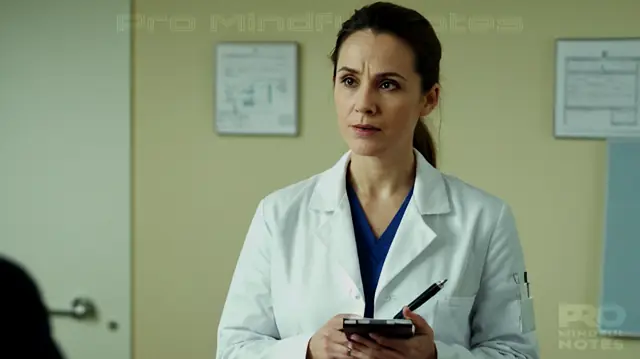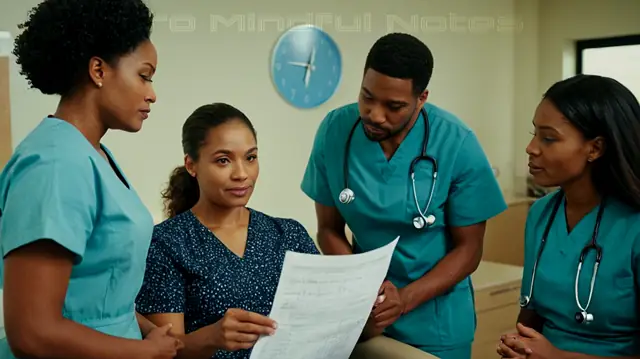Enhance your psychiatric nursing skills with expert notes, examples & practical tips

As a psychiatric nurse, you understand the importance of keeping accurate and comprehensive nurses notes for agitated patients, not only for legal documentation purposes but also to enable seamless communication among healthcare professionals. In this article, we will delve into the world of psychiatric nursing notes, providing expert insights and practical tips on how to enhance your skills in charting and recording patient information.
We will explore the significance of psychiatric nursing notes example and demonstrate how to create a comprehensive note that captures key aspects of a patient's mental health journey. You will learn how to record vital information, such as symptoms, treatment responses, and medication adherence, using our provided behavior note nursing template. Additionally, we will provide examples of mental health nursing progress notes, highlighting the essential elements to include in your records.
Our comprehensive guide will also cover best practices for charting patients with complex mental health needs, offering practical tips on how to maintain accurate and concise psych nursing notes examples. We will share a sample sample psychiatric nurses notes template that can be adapted to fit your specific needs. By the end of this article, you will have a solid understanding of how to create effective psychiatric mental health nursing notes, enabling you to provide high-quality care to your patients and maintain accurate records for future reference.
- The Importance of Psychiatric Nursing Notes
- Why Accurate Notes are Crucial in Mental Health Settings
- Enhancing Your Note-Taking Skills with Expert Tips and Examples
- Understanding the Patient's History, Symptoms, and Current Circumstances
- Recording Medication Adherence, Vital Signs, and Treatment Response
- Using Templates to Ensure Comprehensive Notes
- Conclusion
- Video about Enhance your psychiatric nursing skills with expert notes, examples & practical tips
The Importance of Psychiatric Nursing Notes

Accurate and complete psychiatric nursing notes are essential for providing comprehensive care to patients in mental health settings. As a psychiatric nurse, it is crucial to maintain detailed records of patient interactions, including symptoms, treatment responses, and progress. A well-written psychiatric nursing note example not only facilitates seamless communication among healthcare providers but also serves as legal documentation of patient care.
When caring for an agitated patient, nurses notes for agitated patient are particularly important. These notes should detail the patient's behavior, including any aggressive outbursts or self-harm, as well as any interventions used to manage their agitation. For instance, a note might describe the patient's agitation as "moderate," noting that they were calm after being administered a calming medication.
In mental health nursing settings, progress notes are vital for tracking a patient's progress and identifying changes in their behavior or symptoms. A sample psychiatric nursing notes example might include observations about a patient's mood, such as "Patient reported feeling anxious this morning." Other important elements to include in mental health nursing notes may include medication adherence, vital signs recorded, and any notable events that occurred during the patient's stay.
Why Accurate Notes are Crucial in Mental Health Settings
In mental health settings, accurate nurses notes for agitated patient are essential to ensure the delivery of high-quality care to patients. A well-documented psychiatric nursing note example can mean the difference between a patient receiving timely and effective treatment or falling through the cracks. In addition, accurate notes serve as legal documentation, providing a paper trail that can help protect both patients and healthcare professionals in case of disputes or malpractice claims.
During interactions with patients, it is crucial for psychiatric nurses to maintain detailed behavior note nursing records that capture essential information about their Patient's mental health status, treatment response, and progress towards goals. A comprehensive set of mental health nursing progress notes examples, which includes details on patient engagement, symptom management, and coping skills, can help healthcare providers make informed decisions about treatment and develop effective care plans.
To ensure the accuracy and completeness of psychiatric psych nursing notes examples, nurses should strive to include the following essential elements in their notes: patient identification; current mental health status; medication adherence; vital signs recorded; relevant social history; diagnosis; symptoms; treatment response; and any notable events or behaviors that may impact care. By incorporating these key details into their notes, psychiatric nurses can provide a comprehensive picture of their Patient's journey and facilitate seamless communication among healthcare professionals.
Enhancing Your Note-Taking Skills with Expert Tips and Examples

As a psychiatric nursing professional, maintaining accurate and thorough notes is crucial for providing quality care to patients. A well-written note can make all the difference in capturing vital information, communicating effectively with colleagues and healthcare providers, and ensuring continuity of care.
When creating a psychiatric nursing note example, consider the following best practices: clarity, brevity, and relevance. A good note should provide a comprehensive overview of the patient's mental health status, treatment response, and progress. For instance, when documenting the notes for an agitated patient, be sure to include details such as behavioral observations, vital signs, and medication administration. Here's a sample psychiatric nursing note: "Patient appears anxious and agitated. Vital signs: BP 120/80, HR 110; Medication administered: 2mg of haloperidol every 8 hours."
In addition to documenting patient behavior and symptoms, behavioral notes are also essential in recording changes in the patient's mental health status over time. A sample behavioral note nursing example might look like this: "Patient displays improved mood and engagement with therapy sessions." This information is vital for tracking a patient's progress and making informed treatment decisions.
Another important aspect of psychiatric nursing is maintaining accurate mental health nursing progress notes examples. These notes provide a snapshot of the patient's current mental health status, including their symptoms, treatment response, and any changes or challenges they are experiencing. A sample psychiatric mental health nursing note might look like this: "Patient reports improved sleep quality and decreased anxiety symptoms since starting therapy."
Understanding the Patient's History, Symptoms, and Current Circumstances

As a psychiatric nurse, it is crucial to maintain accurate and comprehensive nurses' notes that document a patient's history, symptoms, and current circumstances. A well-written psychiatric nursing note example serves as a valuable tool for communicating with healthcare providers and informing treatment decisions. When caring for an agitated patient, it is essential to include relevant details in your behavior note nursing, such as the patient's level of agitation, any triggers that may have contributed to their behavior, and the strategies you employed to manage their distress.
When developing a mental health nursing progress notes examples or psych nurses' notes, consider including the following information: patient identification, presenting mental condition, current medications, vital signs recorded, and notable behaviors. For example, if a patient has been experiencing increased anxiety symptoms, your note might detail the triggers that exacerbate their anxiety, as well as any coping mechanisms they have developed or strategies you have implemented to manage their distress.
In addition to documenting a patient's history and symptoms, it is also essential to include details about their current circumstances. This may include information about their living situation, support system, and socioeconomic status, which can all impact their mental health and treatment outcomes. By incorporating these elements into your psychiatric nursing notes, you will be able to provide a more comprehensive picture of the patient's journey and facilitate informed decision-making among healthcare providers.
Recording Medication Adherence, Vital Signs, and Treatment Response
When recording medication adherence in a psychiatric nursing note example, it's essential to include the name of the medication, dose, frequency, and any notable side effects or concerns. For instance, if a patient with bipolar disorder is taking lamotrigine for mood stabilization, you would record "Lamotrigine 100mg PO QHS (no side effects noted)."
When documenting vital signs in nurses notes for agitated patient, it's crucial to include not only the patient's temperature, pulse, and blood pressure but also their mental status. For example: "Patient's vitals: Temp 98.2°F, Pulse 92bpm, BP 120/80mmHg; Mental status: alert and oriented x3, slightly agitated (assessed using the Agitation Severity Scale)."
When assessing treatment response in behavior note nursing, it's essential to consider both positive and negative changes in a patient's mental health. For instance: "Patient has reported a significant reduction in symptoms of depression over the past week (measured by Beck Depression Inventory-II); however, they have also exhibited increased anxiety and agitation during group therapy sessions."
In addition to these vital components, mental health nursing progress notes examples should include any changes in treatment plans or medications, as well as observations about a patient's mental state. For instance: "Patient is now taking two mood stabilizers (lamotrigine and valproate) and has shown improved mood stability; however, they continue to experience some anxiety during morning therapy sessions."
By including these essential elements in your psych nursing notes examples, you can provide a comprehensive picture of a patient's mental health journey, enabling seamless communication among healthcare professionals and facilitating informed treatment decisions.
Using Templates to Ensure Comprehensive Notes
When it comes to documenting Patient's progress and treatment plans, psychiatric nursing notes are a crucial aspect of providing quality care. To ensure that these notes are comprehensive and effective, many psychiatric nurses rely on templates to guide their documentation. A well-crafted template can help you create a clear and concise psychiatric nursing note example, ensuring that all necessary information is included.
For instance, when documenting the behavior of an agitated patient, a template can prompt you to include vital details such as the patient's current mental state, any changes in their behavior or mood, and the effectiveness of treatment interventions. This helps ensure that your nurses notes for agitated patient provide a complete picture of the patient's condition. Similarly, when documenting a patient's progress, a template can help you include relevant information about their symptoms, treatment response, and overall mental health status.
By using a template, you can also streamline your note-taking process and reduce errors. For example, a template for mental health nursing progress notes examples or psych nursing notes examples can guide you through the documentation process, helping you to cover all necessary aspects of a patient's care. By incorporating templates into your note-taking routine, you can create accurate, complete, and compliant psychiatric nursing notes that support effective treatment planning and communication with other healthcare professionals.
Conclusion
As we conclude this article, it is essential to emphasize the significance of maintaining accurate and comprehensive psychiatric nursing notes throughout a patient's treatment journey. By incorporating the tips and examples provided in this piece, you will be better equipped to create detailed and informative nurses notes for agitated patients, allowing your mental health colleagues to make informed decisions about treatment.
To illustrate the importance of behavior note nursing, consider the following scenario: a patient with a history of anxiety is experiencing an acute episode. Without a thorough psychiatric nursing note example, it may be challenging to determine the optimal course of treatment, leading to potentially devastating outcomes. By keeping meticulous records, you will ensure that your mental health nursing progress notes accurately capture the patient's symptoms, treatments, and response to interventions.
Moreover, incorporating the following ten essential elements into your psychiatric nursing note will provide a comprehensive picture of a patient's journey: patient identification; present mental condition; medication adherence; vital signs recorded; diagnostic impressions; treatment plans; therapeutic techniques used; patient engagement and participation; observations about the patient's behavior and coping mechanisms; and any relevant cultural or socioeconomic factors that may influence their treatment.
In closing, we hope this article has provided you with sample psychiatric nurses notes, as well as practical tips for creating behavior nursing notes examples that will enable seamless communication among healthcare professionals. Remember to always prioritize brevity and relevance when charting your Patient's progress, keeping in mind the importance of maintaining accurate psychiatric mental health nursing notes.
Video about Enhance your psychiatric nursing skills with expert notes, examples & practical tips
Leave a Reply


Related Posts